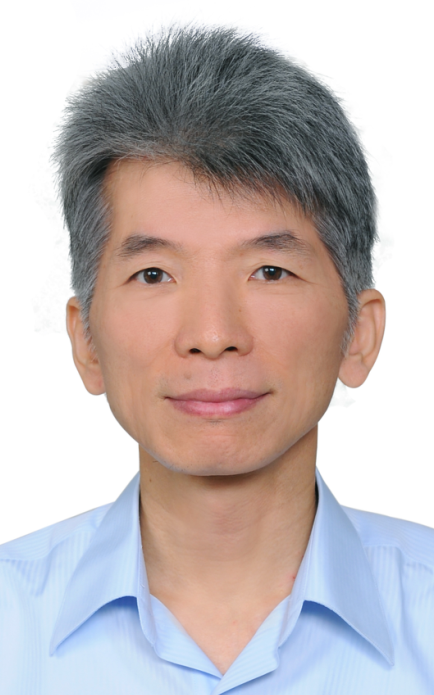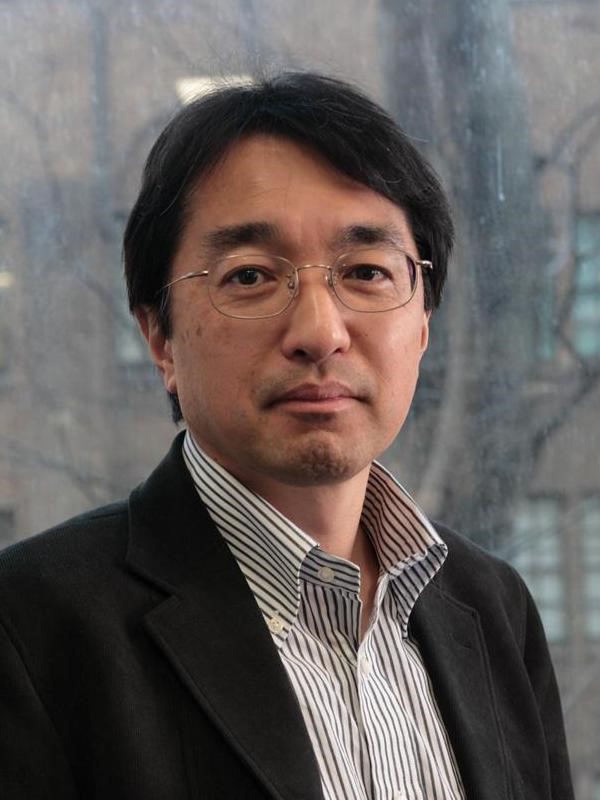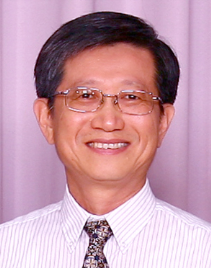
On behalf of the National Sun Yat-sen University (NSYSU), I would like to extend a warm welcome to all of the participants to the conference.
The APSIPA ASC 2013 is the fifth annual conference organized by the Asia-Pacific Signal and Information Processing Association, after being held in Japan (2009), Singapore (2010), China (2011), and the USA (2012). This year focuses on six main subjects, including (1) Biomedical Signal Processing and Systems (BioSiPS), (2) Signal Processing Systems: Design and Implementation (SPS), (3) Image, Video, and Multimedia(IVM), (4) Speech, Language, and Audio (SLA), (5)Signal and Information Processing Theory and Methods (SIPTM), and (6)Wireless Communications and Speech, Communications and networking (WCN). Through this forum we hope to share research findings and exchange innovative ideas.
It is especially delighted for me to have this conference in Kaohsiung, the second largest city in Taiwan, and home to NSYSU. NSYSU was founded in 1980 and has become one of the fastest growing universities in Taiwan and in Asia. NSYSU has endeavored to pursue excellence in teaching and research and has received substantial funding from the Ministry of Education under the “Aiming for Top University Plan.” NSYSU is ranked among the top 301-350 in the 2013 THE World University rankings.
Throughout the conference there will be great opportunities to meet old friends and make new ones, especially in the many networking events organized by the committee. Also, I strongly urge you to find time to explore the city and to stroll along the beach and the mountains of NSYSU campus.
Finally, I would like to thank all the attendees. Your participation is the KEY to the success of the conference.
Hung-Dun Yang,
President, National Sun Yat-sen University, Taiwan

Welcome to the APSIPA annual Summit and Conference 2013 located in Kaohsiung. APSIPA ASC 2013 will be the fifth annual conference organized by Asia-Pacific Signal and Information Processing Association (APSIPA). Founded in 2009, the objective of APSIPA is to promote research and education on signal processing, information technology and communications. The field of interests of APSIPA concern all aspects of signals and information including processing, recognition, classification, communications, networking, computing, system design, security, implementation, and technology with applications to scientific, engineering, and social areas. Following APSIPA 2012, all accepted paper will be published in 2013 APSIPA ASC proceedings which will be indexed by EI Compendex and accessible via IEEE Xplore.
APSIPA ASC continues to grow to be highly diverse and international, and this year there are authors from more than 20 countries and 285 papers accepted. An impressive number of 400 people participated actively in the program review process. We would like to express our sincerest gratitude to all contributing authors and convey our heartfelt appreciation to reviewers and participants alike, for their part in turning APSIPA 2013 to be a highly memorable event. In particular, I gratefully acknowledge the highly commendable efforts of the organizing committee members from the outset of the initial planning stages. Throughout the entire year, they have demonstrated exceptional capabilities in executing their respective tasks which include publicizing the event, inviting renowned speakers, engaging supporting organizations, calling for papers and reviewing them, as well as arranging the eventual technical program, nevertheless, the organizing committee members have been work-ing hard to find solutions and finally making everything perfect. All these efforts have culminated in a conference program from which we hope the next three days will be fruitful for you.
We are honored to have three distinguished keynote speeches by Prof. Nelson Morgan of University of California at Berkeley, CTO and VP John Apostolopoulos of CISCO and Prof. Keiichi Tokuda of Nagoya Institute of Technology. The technical program features eight comprehensive tutorials, eight plenary overviews, one forum discussion session, and together with 48 regular and special sessions. You may also make the most to meet old friends and make new ones from the sessions as well as social events. We have arranged a reception, a banquet with unique cultural performance and a cruise banquet to allow you enjoy the trip of Kaohsiung harbor. We wish you have an enjoyable stay during the conference period.
Finally, we would like to give thanks to President Kuo, the IEEE Signal Processing Society and Chinese Image Processing and Pattern Recognition Society as our technical sponsors and Academic Sinica, National Science Council, Ministry of Education, Institute of Information Industry, Chung Yuan Christian University, Bureau of Foreign Trade for their generosity as our financial sponsors. Their great support has contributed to the success of this conference.
|
|
|
Chung-Nan Lee National Sun Yat-sen University Taiwan |
Kiyoharu Aizawa University of Tokyo Japan |
Chung-Hsien Wu National Cheng Kung University Taiwan |

On behalf of the program chairs, I would firstly like to welcome all participants to the APSIPA Annual Summit and Conference. Being one of the most prestigious gathering of signal and information in the world, APSIPA 2013 continues its 5-year tradition here in Kaohsiung, Taiwan. This is an exciting time for both APSIPA and the field of signal and information.
APSIPA conference has been extremely thought-provoking and competitive; technical program includes regular papers, in-vited special sessions and plenary sessions consisting of a diverse range of research areas. An impressive number of 400 people participated actively in the program review process, and more than 97% of the papers are reviewed by at least 2 reviewers. We greatly appreciate their service, especially for their dedication to putting together this impressive program. Paper submissions were organized into 6 different tracks, of which Speech, Language, and Audio (SLA) and Image Video and Multimedia (IVM) attracted the most submissions. In addition to regular paper submissions, many special sessions are orga-nized; special session organizers invited submissions from experts of a number of defining research fields. For regular paper submissions, the chairs for each of the 6 tracks administered the review process, assigning reviewers and making initial rec-ommendations. These recommendations were later finalized considering the acceptance rates across the various tracks of the conference. For special sessions, the special session co-chairs and others took the role of meta-reviewers for sessions with topics close to their areas and made reviewer assignments and recommendations. On behalf of the entire organizing com-mittee, I would like to thank both the authors for their submissions and the reviewers for their hard work in providing timely and detailed reviews. In addition, we would like to acknowledge the excellent work of the track chairs: Dr. Wei-Ying Ma, Microsoft Asia, China, Prof. Tatsuya Kawahara, Kyoto University, Japan, Prof. Hsin-Min Wang, Academia Sinica, Taiwan, Prof. Mrityunjoy Chakraborty, Indian Institute of Technology, India, Prof. Mohan Kankanhalli, National University of Singapore, Sin-gapore, Prof. Yo-Sung Ho, Gwangju Institute of Science and Technology, Korea, Prof. Jin-Jang Leou, National Chung-Cheng University, Taiwan, Prof. Takeshi Ikenaga, Waseda University, Japan, Prof. Hitoshi Kiya, Tokyo Metropolitan University, Japan, Prof. Yodchanan Wongsawat, Mahidol University, Thailand, Prof. Tomoaki Ohtuki, Keio University, Japan, and Prof. Li-Wei Kang, National Yunlin University of Science and Technology, Taiwan, and Prof. Chia-Hung Yeh, National Sun Yat-sen University, Taiwan. I also would like to specially thank the APSIPA 2012 team, Prof. C.-C. Jay Kuo, and Prof. Antonio Ortega, who generously pro-vided us help and suggestions.
Special sessions have traditionally been a key part of the APSIPA ASC conferences, and this year we have been very fortunate to count on an outstanding team of special session chairs: Prof. Wen-Nung Lie, National Chung-Cheng University, Taiwan, Prof. Jing-Liang Peng, Shandong University, China, and Prof. Yen-Yu Lin, Academia Sinica, Taiwan. The special session track chairs pro-actively defined session topics and the organizers, and played an integral role in organizing the review and decision making process. We thank them for their support, which makes this conference possible. I hope that you, as an APSIPA Annual Summit and Conference attendee, would take the advantage from what all the hard work had produced. Have a great conference experience.




